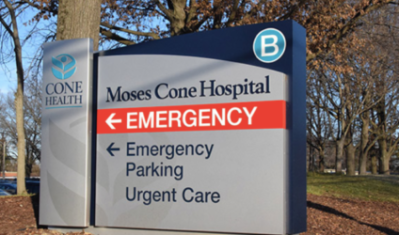Guilford County government is refunding Cone Health nearly $1 million in a settlement that covers five years of the health system’s business personal property taxes. The county has agreed to return $909,516 to Cone as a partial refund of the business personal property taxes that Cone paid from 2014 to 2018.
Much of the dispute centered around which parts of Cone’s vast network are being used for charitable purposes and which parts are not. Cone isn’t required to pay business personal property taxes on property being used for charitable purposes.
The new agreement reached by the county and Cone Health states, “Cone Health agrees to pay the assessed taxes on the business personal property owned by Cone Health and located at physical addresses that have characteristics of ‘standalone physicians’ offices’ that are exclusively engaged in the provision of ambulatory care,” but notes that certain locations have property that is “substantially or significantly used for hospital patient care, health system administration or support, or another clearly charitable purpose.”
Guilford County has agreed that Cone Health is entitled to an exemption on its business personal property at a large number of locations that are “substantially or significantly used for hospital patient care, health system administration or support, or another clearly charitable purpose.”
Guilford County Tax Director Ben Chavis, when asked about the agreement, referred all questions to Guilford County Attorney Mark Payne.
Payne said on Wednesday, March 4 that the agreement is the culmination of a discussion between the county and the large health care provider that’s been going on for four years. (The number of years in which taxes are in dispute is five, however, the discussion didn’t begin until taxes were assessed that first year.)
“This is basically a four-year reconciliation of taxes and assessment,” Payne said.
He added that the county has looked closely at the property in dispute.
“We went through every piece of it to see what’s charitable and what’s not,” Payne said.
He said it was not so much a dispute as a discussion.
“It was more of ‘OK, what do we do here?”
According to Payne, this type of disagreement is typical but this case was somewhat unusual given the size and scope of Cone Health’s operations.
“It’s not very much different from what we do all the time, but the numbers are bigger,” Payne said.

